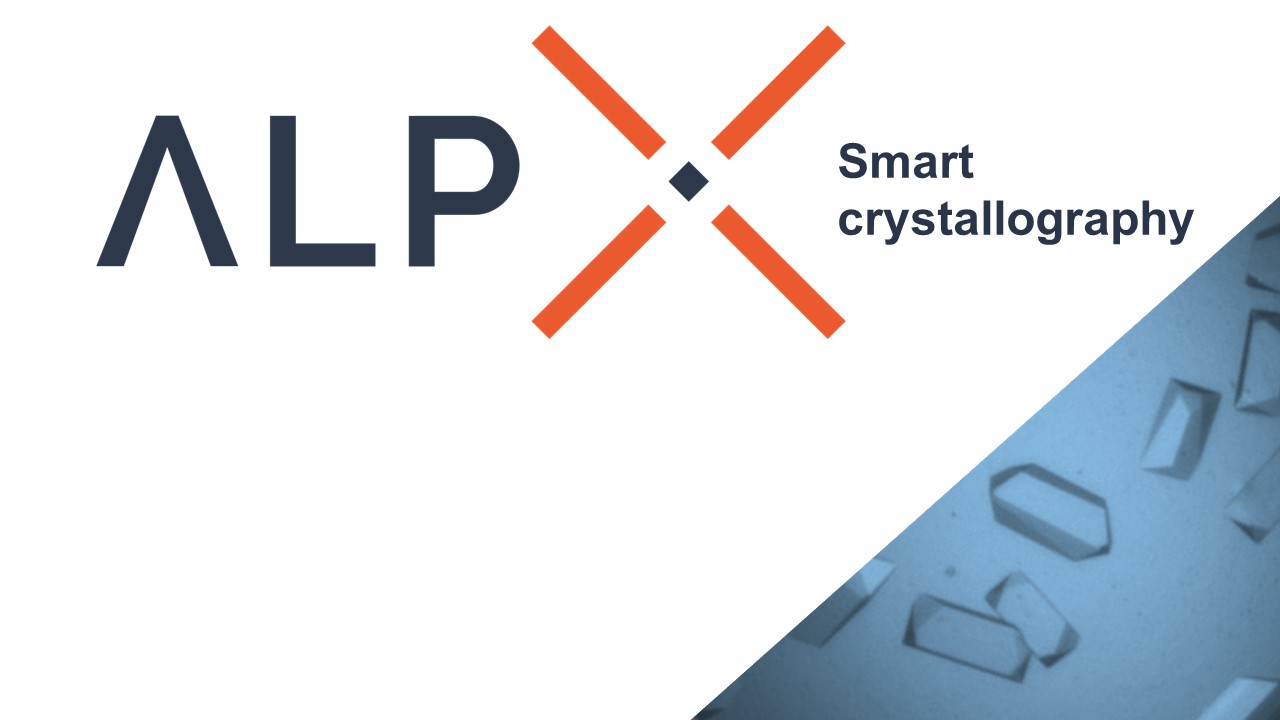Latest EMBL Spinoff ALPX offers fully automated, high-throughput protein-to-structure pipelines to advance structure-based drug design

Heidelberg and Grenoble 08th July 2020: Based on proprietary technology developed at the European Molecular Biology Laboratory (EMBL) in Grenoble, ALPX offers fully automated protein-to-structure pipelines for protein crystallography, fragment and ligand screening, accelerating structure-based approaches in pharma and biotech research. ALPX is the latest spinoff company out of the EMBL and was founded in Grenoble by the institute together with its technology transfer arm, EMBL Enterprise Management Technology Transfer GmbH (EMBLEM).
Macromolecular crystallography has undergone an era of automation in the past two decades, which has revolutionized both crystallization procedures and beamlines. However, the important step of crystal harvesting resisted that trend and remained a relatively slow manual process, that could impact crystal quality.
“Not only is our approach much faster and more precise than harvesting by hand, it also prevents damage to the crystals which often happens during manual handling and therefore ensures a higher crystal quality,”
ALPX offers the full spectrum of services, from protein to structure, comprising crystallization optimization, automated crystal harvesting and cryo-cooling, automated crystal soaking for parallel characterization of compound-target complexes or fragment screening and data collection at various synchrotron facilities. Each package is tailored exactly to the needs of ALPX’ partner.
The CRIMS software allows for real-time access to all relevant project information, all results and enables active tracking and steering of the experiments from any location. This direct project monitoring is available to all partners with every package.
“Virtually we are making a highly automated crystallisation facility and a synchrotron facility available to scientist from their desktop computers.”
EMBLEM has been working side-by-side with the scientists behind CrystalDirect® during the whole process from invention, protection, development and commercialization of the technology. The commercial services have been established years ago within the EMBL and were successfully validated with partners from the pharmaceutical and biotech industry. The growing demand led to the founding of a spinoff company as the logical next step. ALPX enables faster access to crystal structures for its partners, opening up new possibilities for medicinal chemistry.
“Structure-based drug design, which describes the identification of new medications based on knowledge of the structure of the biological target, is essential in modern drug development. This targeted approach greatly reduces the cost and time for drug research, so new medications can be developed with less money and reach the market, and ultimately the patient, earlier,”
Contact
Irina Cornaciu, PhD
ALPX CEO
71 Avenue des Martyrs
38000 Grenoble France
About ALPX
ALPX is the newest EMBL spin-off providing structural biology services to accelerate the drug discovery process. Our fully automated protein-to-structure pipelines are based on unique Technologies developed at EMBL HTX lab: CrystalDirect® and CRIMS.
For more information, please visit https://alpx-services.com/
About EMBL
EMBL is Europe’s flagship laboratory for the life sciences. Established in 1974 as an intergovernmental organisation, EMBL is supported by over 20 member states. EMBL performs fundamental research in molecular biology, studying the story of life. The institute offers services to the scientific community; trains the next generation of scientists and strives to integrate the life sciences across Europe.
EMBL is international, innovative and interdisciplinary. Its more than 1600 staff, from over 80 countries, operate across six sites in Barcelona (Spain), Grenoble (France), Hamburg (Germany), Heidelberg (Germany), Hinxton (UK) and Rome (Italy). EMBL scientists work in independent groups and conduct research and offer services in all areas of molecular biology.
EMBL research drives the development of new technology and methods in the life sciences. The institute works to transfer this knowledge for the benefit of society.
For more information, please visit https://www.embl.de
About EMBL Grenoble
EMBL Grenoble’s activities combine fundamental research in structural molecular biology, methods and instrumentation development, and structural biology services for the European structural biology community. Basic research is focussed mainly on the structure and function of protein-RNA complexes involved in gene expression and infection biology, resulting in a number of drug development projects.
Service provision includes user access, in collaboration with the European Synchrotron Radiation Facility (ESRF), to a suite of highly automated crystallography and small angle scattering X-ray beamlines, as well as a Krios cryo-electron microscope. EMBL Grenoble also runs a large, high-throughput crystallisation (HTX) platform that feeds directly into the ESRF beamlines via integrated crystal-to-structure pipelines, which are available to users through iNEXT-Discovery and Instruct.
To underpin its research and service activities, EMBL Grenoble has made numerous world-leading innovations in synchrotron diffraction instrumentation that are commercialised worldwide.
For more information, please visit https://www.embl.fr/
About EMBLEM
EMBLEM, established in 1999, identifies, protects and commercializes the intellectual property developed in the EMBL world, from EMBL alumni and from non-EMBL third parties. EMBLEM currently manages a portfolio of more than 400 granted patents and patent applications, and has created more than 20 spin-out companies. EMBLEM facilitates and accelerates the transfer of innovative technology from basic research to industry by working closely with industrial partners spanning the biotech, IT and mechanical/electrical engineering markets and currently has more than 400 licensees of EMBL technologies.
For more information, please visit www.embl-em.de
